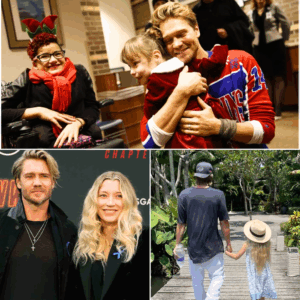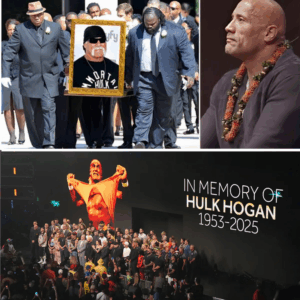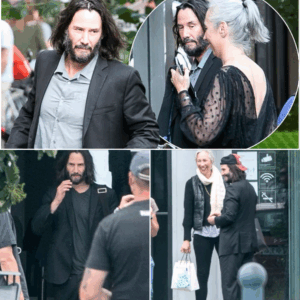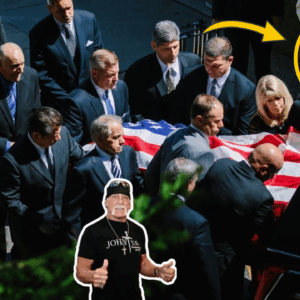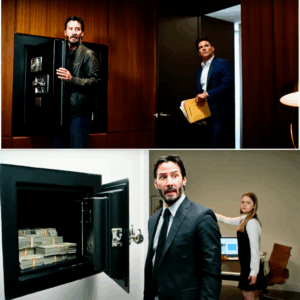In the heart of Midtown Manhattan, a chilling scene unfolded on the evening of July 28, 2025, as a gunman turned a bustling office tower into a nightmare. At 345 Park Avenue, a 44-story skyscraper housing major firms like Blackstone, KPMG, and the NFL headquarters, five lives were extinguished in a brutal shooting spree that left the city reeling. Among the dead were a heroic NYPD officer, three civilians, and the gunman himself, who ended his rampage with a self-inflicted gunshot. CCTV footage, released by authorities, captured the horrifying moment-by-moment escalation as 27-year-old Shane Devon Tamura methodically moved floor to floor, targeting victims with cold precision, turning a routine rush hour into a scene of terror that has shaken New York and beyond.
The tragedy began just before 6:30 p.m. as Tamura, a Las Vegas resident with a documented mental health history, double-parked his black BMW outside the building. Surveillance cameras recorded him stepping out, an M4 rifle gripped in his right hand, his demeanor eerily calm as he strode toward the entrance. The footage, described by NYPD Commissioner Jessica Tisch during a late-night press conference, shows Tamura entering the lobby and immediately opening fire on off-duty officer Didarul Islam, 36, who was working a paid security detail. Islam, a Bangladeshi immigrant and father of two with a third child on the way, fell in a hail of bullets, his sacrifice marking the start of a deadly chain reaction.
Tamura didn’t stop there. The CCTV reveals him spraying the lobby with gunfire, striking a woman hiding behind a pillar and a security guard crouched behind a desk. A third man in the lobby was also hit, his fate sealed in the chaos. Remarkably, as an elevator arrived, Tamura allowed a woman to exit unharmed before stepping inside, ascending to the 33rd floor where Rudin Management’s offices are located. There, the footage shows him walking the hallway, firing rounds indiscriminately, killing another victim before turning the gun on himself, collapsing with a self-inflicted chest wound. The methodical nature of his movements—captured in stark clarity—has left investigators and the public grappling with the brutality of his actions.

The building, a commercial hub spanning 1.9 million square feet, became a fortress of fear as the attack unfolded. Employees on the 32nd floor barricaded doors with furniture, texting loved ones in desperation, while others fled onto the streets, hands raised in surrender to police. Jessica Chen, a witness, told ABC News she heard “multiple shots go off in quick succession” and joined colleagues in a lockdown, her voice trembling as she recounted the ordeal. Outside, pedestrians scattered, some captured on video running past police lines, their screams piercing the air. Mayor Eric Adams, addressing the city via X, confirmed multiple injuries and urged those inside to shelter in place as officers conducted a floor-by-floor search.
The human toll was devastating. Officer Islam, hailed as a “true blue hero” by Adams, died protecting others, his loss a blow to a department that mourned his dedication. The three civilian victims—two men and a woman—remain unnamed pending family notifications, their lives cut short in a senseless act. A fifth victim, gravely wounded, fights for life in critical condition, while four others sustained minor injuries fleeing the scene. The NFL confirmed one of its employees was seriously hurt, and KPMG expressed gratitude to security and law enforcement while mourning the “horrific act.” The building’s diverse tenants, including the consulate general of Ireland and Bank of America, faced an unprecedented breach of safety.
Tamura’s journey to this moment adds a layer of mystery. Police traced his path from Las Vegas, where he passed through Colorado, Nebraska, and Iowa before arriving in New York on July 28. His car yielded a trove of evidence: a rifle case, a loaded revolver, ammunition, magazines, a backpack, and medication prescribed to him. A note found at the scene, reported by Sky News, hinted at anger over mental illness potentially linked to chronic traumatic encephalopathy (CTE), possibly tied to his past as a football player, though authorities caution the motive remains under investigation. Tamura’s mental health history, noted by Las Vegas police, raises questions about oversight and the accessibility of firearms, a debate reignited by this tragedy.
The response was swift and massive. Dozens of police officers stormed the building, their entrance captured on cellphone video from the nearby Lotte Hotel, showing a disciplined advance to neutralize the threat. The FBI joined the NYPD, scouring surveillance from thousands of cameras to reconstruct Tamura’s movements. Governor Kathy Hochul and Senator Chuck Schumer offered prayers and calls for action on gun violence, while the Police Benevolent Association’s Patrick Hendry labeled the attack “pure evil.” The scene, cordoned off with police tape, drew crowds of onlookers and protesters, some holding signs decrying gun laws, their anger palpable against the backdrop of sirens.
Public reaction on platforms like X mirrored the city’s shock and division. Some praised the bravery of first responders, others demanded stricter gun control, while a few speculated on Tamura’s motives, though no consensus emerged. The footage, widely circulated, fueled a mix of horror and fascination, with users debating the gunman’s calm demeanor—a stark contrast to the panic he unleashed. Critics questioned how a man with mental health issues could legally carry such a weapon, while supporters of Second Amendment rights argued against knee-jerk policy changes. The incident, occurring blocks from St. Patrick’s Cathedral and Rockefeller Center, underscored the vulnerability of even the safest urban spaces.
The investigation continues to unravel Tamura’s intent. Was 345 Park Avenue a random target, or did its high-profile tenants—Blackstone, KPMG, the NFL—play a role? The presence of the NFL offices has led some to connect the CTE note to a personal grievance, but police have yet to confirm this. Tamura’s lack of a significant criminal history, per preliminary checks, complicates the profile, leaving experts to ponder whether this was a spontaneous act or a calculated strike. The discovery of body armor and multiple weapons suggests preparation, yet his decision to end his life hints at despair, not conquest.
For the victims’ families, the pain is immediate and raw. Islam’s pregnant wife and young sons face a future without their protector, a loss echoed by the unnamed civilians’ loved ones. The building, once a symbol of corporate power, now stands as a somber reminder of violence’s reach. As New York mourns, the city’s resilience is tested, with Adams vowing to honor the fallen and prevent future tragedies. The CCTV footage, a haunting record of Tamura’s ascent through the tower, serves as both evidence and a call to action, demanding answers in a city that prides itself on order amid chaos.
This shooting, one of several in the U.S. that day—including a Reno casino attack—amplifies the national conversation on gun violence and mental health. As the 33rd floor falls silent and the lobby’s echoes fade, the question lingers: could this have been stopped? For now, the images of Tamura’s relentless climb remain etched in memory, a grim testament to a day when a high-rise became a killing ground.
